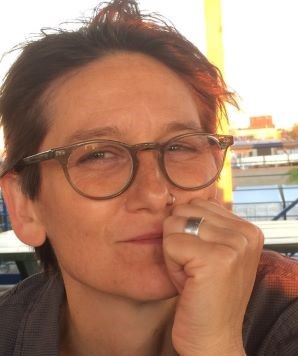Comparative Classrooms: Teaching to Transgress
By Valerie Fendt
Comparative Classrooms: Teaching to Transgress is the exhibit project that resulted from interviews with people whose life’s work is dedicated to extending educational opportunities to justice-involved communities. The connections between incarceration and under-education are striking, as are the reduced rates of recidivism for those who participate in educational programming either within correctional facilities or when they are released. These narrators recount their own educational and carceral experiences, drawing connecting lines between educational justice, criminal justice, and racial justice. If we are committed to changing policies that result in mass incarceration, we must be willing to engage in difficult questions. What is the point of incarceration? Who is redemption for? If we send people away for years, creating a hole where their heart used to be, how would we like them to fill that hole: with anger and rage? Or with theories that connect them to the rest of humanity?

While working in the technically and physically demanding professions of bicycle messenger, theatrical stagehand, and bookbinder/conservation technician, Valerie Fendt fed her intellectual hunger through literature, film, the study of liberation struggles, and the camaraderie of fellow artists/activists. Since coming to Columbia University, she has been delighted to discover that she could not only build on this non-traditional educational background but also thrive in the academy as a passionate student of history, culture and politics. She graduated summa cum laude in 2017 with departmental honors for her History thesis, “Paradigm Shift: The Standing Rock Sioux and the Struggle of Our Time.”
With the strong belief that creating space for and seeking out marginalized voices helps to facilitate freedom for everyone and enriches the whole of society, Valerie is thrilled to join the Oral History graduate program. She looks forward to developing the skills necessary to gather and present those voices in a way that broadens our collective sense of history and invites new meaning into the public conversation.